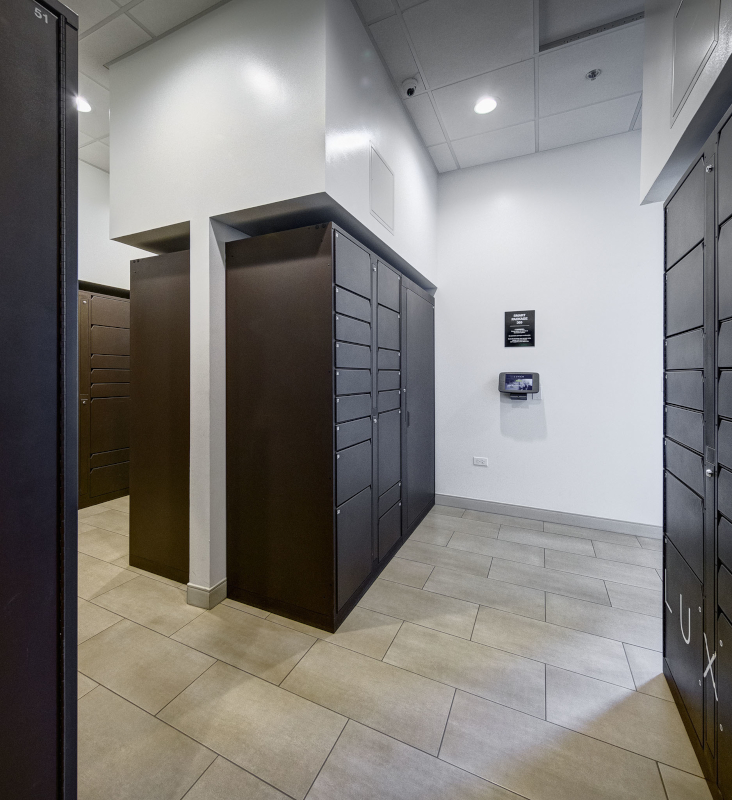Category: package management
New Package Centers are Making Life Easier for Multifamily Residents
As more multifamily properties make improvements to common areas, one space in particular is receiving quite the makeover: the package room.

Traditional package management is causing headaches for property managers. Boxes from Amazon, groceries, and other deliveries inundate front offices (UPS delivered 800 million packages during the 2018 holiday season, up 50 million from 2017. That’s not including deliveries from the USPS and other shippers.). Staff spend hours logging deliveries, and the additional time and manpower is expensive. Residents are feeling the burden by not being able to claim their packages outside of regular office hours. Additionally, there are the legal liabilities associated with lost or damaged items.
Multifamily property managers are adapting by redesigning package rooms and management systems to accommodate tenants in the following ways:
Dedicated Package Delivery Centers
The traditional mailroom is a dying breed, as apartment and condo buildings have been installing dedicated package delivery centers for the last ten years. “Such facilities have grown in number and sophistication as the flood of packages has risen, and as residents’ reliance on them has gone up exponentially,” according to Building Design + Construction.
Package management system disruptors are playing a major role. Multifamily Executive calls 2018 the “tipping point” of package-management automation. Property managers are taking advantage of the technology to reduce costs and create a more self-sufficient environment. Companies like Package Concierge and Parcel Pending allow deliveries of packages in secure lockers that are accessed using touch-screens. Residents receive text messages with PIN numbers to alert them of package-arrival, and they can retrieve them whenever they’d like. The technology is so popular that the lockers are now being used in retail and grocery locations, corporate campuses, and universities.
Access and Space
Package centers should be highly visible, easily accessible, and available 24/7 so that tenants can retrieve their deliveries on their own time.
“New Package Concierge data shows that 83% of users would prefer 24/7 access to the locker in order to increase utilization of the solution,” according to Multifamily Executive. “Installing automated lockers in common areas or near the mailroom allows residents and carriers alike easy access.”
Renovations to create more physical space for package centers is critical to accommodate self-serving systems. Packages come in all shapes and sizes; therefore, providing enough options for lockers to handle volume is key.

“Don’t limit your potential for using these systems now or in the future – especially since package volume will only continue to rise,” adds Multifamily Executive. “On average, today’s apartment buildings receive up to 50 packages a day, which increases during the holidays, so including plenty of available space to manage this volume is important.”
Creating Community Experience
If tenants are happy, so are property managers and investors. Successful multifamily properties focus on enhancing the resident experience, and designing the right package area helps foster community. Per Building Design + Construction, “Many rental and condominium communities integrate package centers into high-traffic areas. Not only does this make it easier for couriers to find the center and deliver packages, it also makes receiving a package a neighborly event. If planned and designed appropriately, package centers can strengthen community ties among residents. The inclusion of communal tables and recycling bins gives residents the option to open their packages immediately while socializing with their neighbors.”

Conclusion
Renovating package centers and investing in new technology is essential for meeting the demands of today’s delivery volume and tenant needs. The best package-management systems provide secure, 24-hour access, keep package areas neat and clean, and free up time and energy of building staff.
